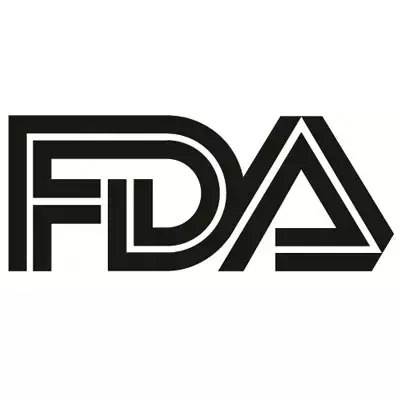- Home
- Medical news & Guidelines
- Anesthesiology
- Cardiology and CTVS
- Critical Care
- Dentistry
- Dermatology
- Diabetes and Endocrinology
- ENT
- Gastroenterology
- Medicine
- Nephrology
- Neurology
- Obstretics-Gynaecology
- Oncology
- Ophthalmology
- Orthopaedics
- Pediatrics-Neonatology
- Psychiatry
- Pulmonology
- Radiology
- Surgery
- Urology
- Laboratory Medicine
- Diet
- Nursing
- Paramedical
- Physiotherapy
- Health news
- Fact Check
- Bone Health Fact Check
- Brain Health Fact Check
- Cancer Related Fact Check
- Child Care Fact Check
- Dental and oral health fact check
- Diabetes and metabolic health fact check
- Diet and Nutrition Fact Check
- Eye and ENT Care Fact Check
- Fitness fact check
- Gut health fact check
- Heart health fact check
- Kidney health fact check
- Medical education fact check
- Men's health fact check
- Respiratory fact check
- Skin and hair care fact check
- Vaccine and Immunization fact check
- Women's health fact check
- AYUSH
- State News
- Andaman and Nicobar Islands
- Andhra Pradesh
- Arunachal Pradesh
- Assam
- Bihar
- Chandigarh
- Chattisgarh
- Dadra and Nagar Haveli
- Daman and Diu
- Delhi
- Goa
- Gujarat
- Haryana
- Himachal Pradesh
- Jammu & Kashmir
- Jharkhand
- Karnataka
- Kerala
- Ladakh
- Lakshadweep
- Madhya Pradesh
- Maharashtra
- Manipur
- Meghalaya
- Mizoram
- Nagaland
- Odisha
- Puducherry
- Punjab
- Rajasthan
- Sikkim
- Tamil Nadu
- Telangana
- Tripura
- Uttar Pradesh
- Uttrakhand
- West Bengal
- Medical Education
- Industry
FDA approves dapagliflozin for heart failure with reduced ejection fraction

The U.S. Food and Drug Administration has approved Farxiga (dapagliflozin) oral tablets for adults with heart failure with reduced ejection fraction to reduce the risk of cardiovascular death and hospitalization for heart failure.
The FDA has granted the approval of Farxiga (Dapagliflozin) for heart failure to AstraZeneca Pharmaceuticals LP Wilmington, DE.
Dapagliflozin is the first sodium-glucose co-transporter 2 (SGLT2) inhibitor to be approved to treat adults with heart failure with reduced ejection fraction.
Heart failure occurs when the heart does not pump enough blood to support the body's needs, and this type of heart failure happens when the heart's main pumping chamber, the left ventricle, is weakened.
"Heart failure is a serious health condition that contributes to one in eight deaths in the U.S. and impacts nearly 6.5 million Americans," said Norman Stockbridge, M.D., Ph.D., director of the Division of Cardiology and Nephrology in the FDA's Center for Drug Evaluation and Research. "This approval provides patients with heart failure with reduced ejection fraction an additional treatment option that can improve survival and reduce the need for hospitalization."
Farxiga was shown in a clinical trial to improve survival and reduce the need for hospitalization in adults with heart failure with reduced ejection fraction. Farxiga's safety and effectiveness were evaluated in a randomized, double-blind, placebo-controlled study of 4,744 participants. The average age of participants was 66 years and more participants were male (77%) than female. To determine the drug's effectiveness, investigators examined the occurrence of cardiovascular death, hospitalization for heart failure, and urgent heart failure visits. Participants were randomly assigned to receive a once-daily dose of either 10 milligrams of Farxiga or a placebo (inactive treatment). After about 18 months, people who received Farxiga had fewer cardiovascular deaths, hospitalizations for heart failure, and urgent heart failure visits than those receiving the placebo.
Farxiga can cause dehydration, serious urinary tract infections and genital yeast infections. Elderly patients, patients with kidney problems, those with low blood pressure, and patients on diuretics should be assessed for their volume status and kidney function. Patients with signs and symptoms of metabolic acidosis or ketoacidosis (acid buildup in the blood) should also be assessed. Farxiga can cause serious cases of necrotizing fasciitis of the perineum (Fournier's Gangrene) in people with diabetes and low blood sugar when combined with insulin.
This application received Priority Review designation, meaning the agency planned to take action on the application within six months, because the drug, if approved, would significantly improve the safety or effectiveness of treating, diagnosing or preventing a serious condition.
Farxiga is also FDA-approved to improve glycemic control in adults with type 2 diabetes in addition to diet and exercise, and to reduce the risk of hospitalization for heart failure among adults with type 2 diabetes and known cardiovascular disease or other risk factors.
For further reference log on to:
FDA
Dr Kamal Kant Kohli-MBBS, DTCD- a chest specialist with more than 30 years of practice and a flair for writing clinical articles, Dr Kamal Kant Kohli joined Medical Dialogues as a Chief Editor of Medical News. Besides writing articles, as an editor, he proofreads and verifies all the medical content published on Medical Dialogues including those coming from journals, studies,medical conferences,guidelines etc. Email: drkohli@medicaldialogues.in. Contact no. 011-43720751


